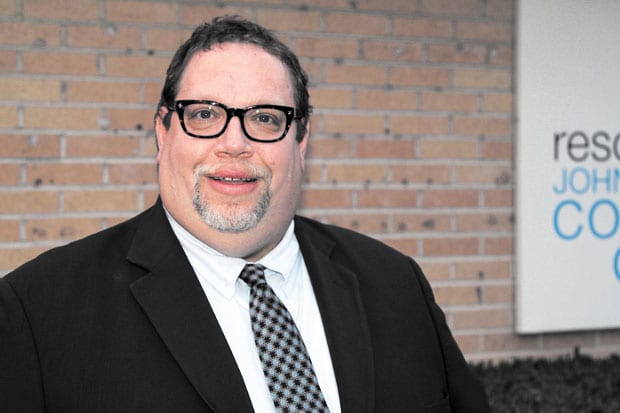Advocate concerned over Dallas ISD’s apparent double standard
JAMES RUSSELL | Staff Writer
Neither letters from national advocacy and local groups nor the threat of lawsuits has prevented an overwhelming majority of Texas school districts from passing a rule barring transgender student athletes in sports.
The 586-32 vote to ratify the policy came after the 32-member legislative council of the University Interscholastic League, the statewide body overseeing high school sports and other extracurricular activities, voted in October to send the rule to member schools.
The rule states ”gender shall be determined based on a student’s birth certificate. In cases where a student’s birth certificate is unavailable, other similar government documents used for the purpose of identification may be submitted.”
Rafael McDonnell, communications and advocacy manager for Resource Center, lobbied aggressively against the rule. He said he is disappointed with the results, including the Dallas school district’s vote for the rule. McDonnell said he thought officials with Dallas ISD, which is the largest school district in the region, would vote against it.
A breakdown in communication occurred somewhere, McDonnell said. But the question is, where?
“I had a discussion with Dallas Independent School District officials about what went down … and what went wrong. The vote is inconsistent with how I perceive the district to be on LGBT issues,” McDonnell said.
He cited the school district’s inclusive anti-bullying policy and other measures that ensure equal and fair treatment for LGBT faculty, staff and students.
Past experiences with the district made the vote even more surprising.
“If there was ever a problem, it was always handled when you contacted the right person. That’s what makes this vote more stunning,” McDonnell said.
McDonnell said the board was not briefed on the vote either.
“To take them out of the loop is not a good thing,” McDonnell said.
As of press time, Dallas school district officials had failed to follow through in commenting to Dallas Voice.
Ongoing conflict
While Charles Breithaupt, UIL’s executive director, has repeatedly said the rule simply codifies what has been informally applied in the past, McDonnell said that does not mean it could be upheld in court.
McDonnell e-mailed his concerns to Breithaupt. He noted the proposed rule violates a 2014 determination by the Department of Education’s Office of Civil Rights that under Title IX, the federal law prohibiting sex-based discrimination in any federally funded program, discrimination on the basis of gender identity is a form of sex discrimination, extending the protections to transgender students.
To resolve the issue, McDonnell offered to arrange a meeting to discuss the changes.
But in a Nov. 5 response, Breithaupt defended the proposed policy. And he declined to meet with McDonnell.
“The UIL appreciates your concerns but respectfully disagrees that the UIL has made a ‘grave error.’ The UIL makes every effort, in both rule and practice, to provide fair and equitable competition in compliance with state and federal law. While I appreciate your desire to discuss this matter further, you clearly do not agree with the UIL’s passage of this proposal,” Breithaupt wrote.
Graeme Reid, director of the LGBT Rights Program for international human rights advocacy group Human Rights Watch, wrote in November, warning the rule would impose a “stricter standard” than other collegiate groups, including the National Collegiate Athletics Association and the International Olympic Committee.
His letter could not have come at a more convenient time. Just two days before Reid sent his letter, on Nov. 2, the Education Department ruled a Palatine, Ill. school district violated Title IX by refusing to allow a transgender girl on a girls’ sports team to use the girls’ locker room.
Texas is going against the tide with its new rule, even against other reliably conservative states. Despite the assault on transgender individuals in statehouses around the country, one Republican governor vetoed such a bill.
Many states have passed laws allowing transgender student-athletes to play sports based on their identity.
On Tuesday, March 1, South Dakota Gov. Dennis Daugaard vetoed a first-of-its-kind bill that would restrict use of bathrooms by transgender students after meeting with transgender South Dakotans. In his veto letter he wrote the legislation “does not address any pressing issue.” on Thursday, March 5, the legislature failed to override the veto.
Internationally, medical officials with the International Olympic Committee recommended transgender athletes be allowed to compete without gender reassignment surgery.
According to the new recommendations, female-to-male athletes will be able to participate in men’s competitions “without restriction.” Male-to-female athletes, however, will need to prove their testosterone levels have been below a certain level for the past year to be allowed to compete.
Societal changes and scientific research contributed to the changes, according to an IOC document.
While UIL officials argue the rule just codifies longstanding practice, McDonnell said that is no justification for discrimination.
“Over the history of our nation we’ve codified lots of [unjust laws]. Tradition shouldn’t be a guide alone,” McDonnell said.
The negative impact on transgender students notwithstanding, McDonnell is concerned it’s “a lack of the left and right hands not knowing what each other are doing.”
“I don’t know where the breakdown happened,” McDonnell said. “How you resolve it is the big question right now. Ultimately I think it will be resolved in the courts by a transgender student athlete or the Department of Education’s Office of Civil Rights.”
This article appeared in the Dallas Voice print edition March 4, 2016.


